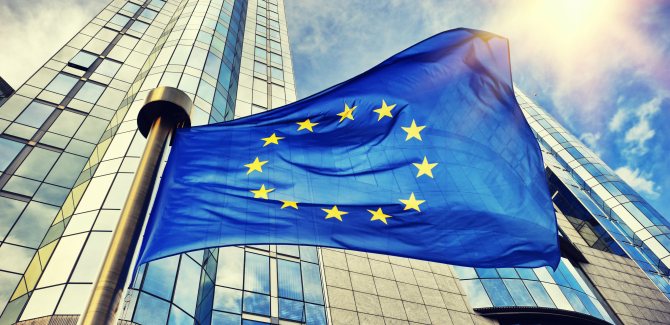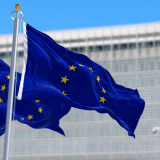
European Commission proposes legislation on AI
It is with great interest that EL has been following developments around Artificial Intelligence (AI) in the EU institutions. A major milestone was reached in February 2020 when the European Commission published a White Paper on AI together with an accompanying Report on the safety and liability framework. The White Paper was then put up for public consultation during which stakeholders from both public and private sectors expressed strong support for the design of a regulatory framework for AI (e.g. regulation, certification and labelling) and the revision of relevant existing EU legislation to cover particular risks engendered by certain AI applications.
In the meantime, the European Parliament adopted a number of resolutions on AI – among other covering ethics, civil liability, and intellectual property – with several other reports still in preparation. Also, a special committee on AI in a digital age has been set up in June 2020 to analyse the future impact of AI in the digital age, investigate the challenge of deploying AI, analyse the approach of third countries and submit to Parliament’s responsible standing committees an evaluation defining common EU objectives in this matter.
AI can be used for many plausible causes in the gambling sector, such as improving customer identification, early detection of excessive and underaged gamblers and support, prevention of fraud or the use of gambling for criminal purposes such as money-laundering, to name a few.
However, as also recognised by the European Parliament in its study “New Aspects and Challenges in Consumer Protection: Digital Services and Artificial Intelligence”, AI application can sometimes be misused by malevolent parties (and/or illegal operators) to induce people to “purchase goods (or services) they do not need, to overspend, to engage in risky financial transactions, to indulge in their weaknesses such as gambling”. It is acknowledged that in certain segments of gambling, namely skill games (such as horse race betting) the use of AI can be detrimental to and undermine the integrity of the betting activity and increase the risk of manipulation. In this connection, as recalled by the recent reply from Commissioner Thierry Breton to the Parliamentary Question E-001260/2020 rules protecting consumers’ interests in advertising and pricing practices shall fully apply, regardless of the use of AI or other technologies. This includes all rights and obligations under the GDPR, but also the Unfair Commercial Practices Directive (Directive 2005/29/EC) and its guidance document, as well as the newly adopted Directive on better enforcement and modernization of EU consumer protection rules (Directive (EU) 2019/2161).
A very fine balance should thus be achieved between the deployment of AI for commercial purposes and the respect of necessary consumer protection, public order and personal data protection rules in the gambling sector.
The Ethics Guidelines for Trustworthy AI issued by the European Commission’s High Level Expert Group could give good guidance, but the implementation of such technologies should be authorized and supervised under national rules in the gambling sector.
Excerpt from the EL’s submission to the European Commission’s public consultation on AI, May 2020
What’s in the European Commission’s legislative proposal?
On April 21 – also on the basis of input received during the public consultation – the Commission has proposed legislation on AI. The rules are the first of their kind to regulate AI, based on a human-centric approach whereby AI is seen as a tool operating “in the service of humanity and the public good, aiming to increase individual and collective human well-being”.
In the proposal, the Commission acknowledged AI can contribute to a wide array of economic and societal benefits across the entire spectrum of sectors and social activities. However, some of the uses and applications thereof may at the same time generate risks and cause harm to interests and rights that are protected by the EU law. This is why the Commission wants to target specific uses of AI – such as facial recognition technologies for the surveillance of citizens or algorithms for recruitment purposes – and allow risky AI tech into the internal market only if particular standards are met.
The Commission therefore proposed a risk–based approach with four levels of risk:
- Unacceptable risk: AI systems considered to be a clear threat to the safety, livelihoods and rights of people.
- High-risk: AI systems identified as high-risk include AI technology used in critical infrastructures; educational or vocational training; safety components of products; employment, workers management and access to self-employment; essential private and public services; law enforcement that may interfere with people's fundamental rights; migration, asylum and border control management; administration of justice and democratic processes.
- Limited risk: AI systems with specific transparency obligations.
- Minimal risk: free use of applications such as AI-enabled video games or spam filters.
According to the proposal, non-compliant companies could face fines of up to €30 million or 6 percent of their turnover.
Each Member State will be required to designate one or more national competent authorities to supervise the application and implementation of this Regulation, as well as carry out market surveillance activities. The Regulation also foresees a set up a new European AI Board, which will supervise the law’s application and offer best practices.
AI applications in the gambling sector
AI is already being applied across different streams of the gambling sector. For example, it can be used in the (online) player registration to automatise identification and validation processes and apply facial recognition tools. It can also support personalisation of player experience by understanding player behaviour (e.g. sessions’ length, games played, stakes waged, days of the week/time of day when played most, etc.) and engaging into behavioural clustering which allows for a multidimensional view when making recommendations to the players. By making sure that the right game is recommended to the right player at the right time, gambling operators can increase activation rates in the earliest stages, as well as retention rates of loyal players at the later stages. Maybe even most importantly, AI can play a major role in player protection and responsible gaming by classifying players into risk profiles taking into account a wide range of behavioural elements it observes and analyses.
Veikkaus’ guidelines for using AI in gambling
In January this year, Finnish lottery Veikkaus issued guidelines for the use of AI in gambling regarding transparency, privacy and responsibility with focus on players. Veikkaus already uses AI for a number of operations including digital marketing, betting odds calculation process, operating a customer service chatbot, making automatic money laundering notifications, identifying possible abuses and automatic processing of recurring invoices. By issuing the guidelines, Veikkaus clearly demonstrated its commitment to communicating openly and clearly as to how it uses AI, as well as defining how AI will assist the business with its goals. It also acknowledged the issue of privacy with AI, saying that it ensures the protection of any information used by AI, and both the secure storage and processing of this data. Veikkaus intends to continuously evaluate the quality of AI methods used to ensure it is being used in a responsible manner, while all AI applications or machine learning models have their own manager to ensure the algorithms comply with its guidelines.
”Being transparent in how we are utilizing AI is essential. Since we store and use a lot of data, it is important that our customers and stakeholders can rely on us, how we are using one of our biggest assets. We hope that by using AI, we can provide an outstanding and responsible customer experience, improve internal efficiency as well as prevent fraud.”
Chief Data & Analytics Officer Lauri Halkola, Veikkaus
All of this goes to say that AI certainly can contribute to an enhanced player protection while offering a better gaming experience at the same time. However, it is not a “magic wand” to resolve all the problems – neither in the gambling nor in any other sector – and is not without risks. Lotteries, as well as any other gambling operator in the market should therefore make sure that when they deploy AI this is by no means contributing towards any harm and that there is a healthy integration with the human judgement element.
Next steps
The last committee of the European Parliament to adopt its own-initiative report on AI on April 14 was Internal Market and Consumer Protection. The report focuses on removing barriers to using AI in the digital single market with Members of the European Parliament reiterating their demands for a common EU regulatory framework for human-centric AI and requesting more support for SMEs. It also calls on the Commission to consider a voluntary labelling scheme for trustworthy AI. Own-initiative reports of the European Parliament are not regarded as one of the formal decision-making procedures of the EU, but they are a significant precursor to legislative procedures being initiated.
The European Parliament will now commence the work towards adopting its position on the actual proposal of the European Commission, as will the Member States in the Council before the negotiations between all the three institutions can start and the legislative text is finalised. Once adopted, the final Regulation will be directly applicable across the EU.
EL closely monitors and – as appropriate – gets actively involved with the EU institutions and any other relevant stakeholders on AI and will continue to do so in the best interest of its members. If you would like to know more about AI, but also any other upcoming EU initiatives with relevance for the gambling sector and how these might impact your business, please contact EL staff.







